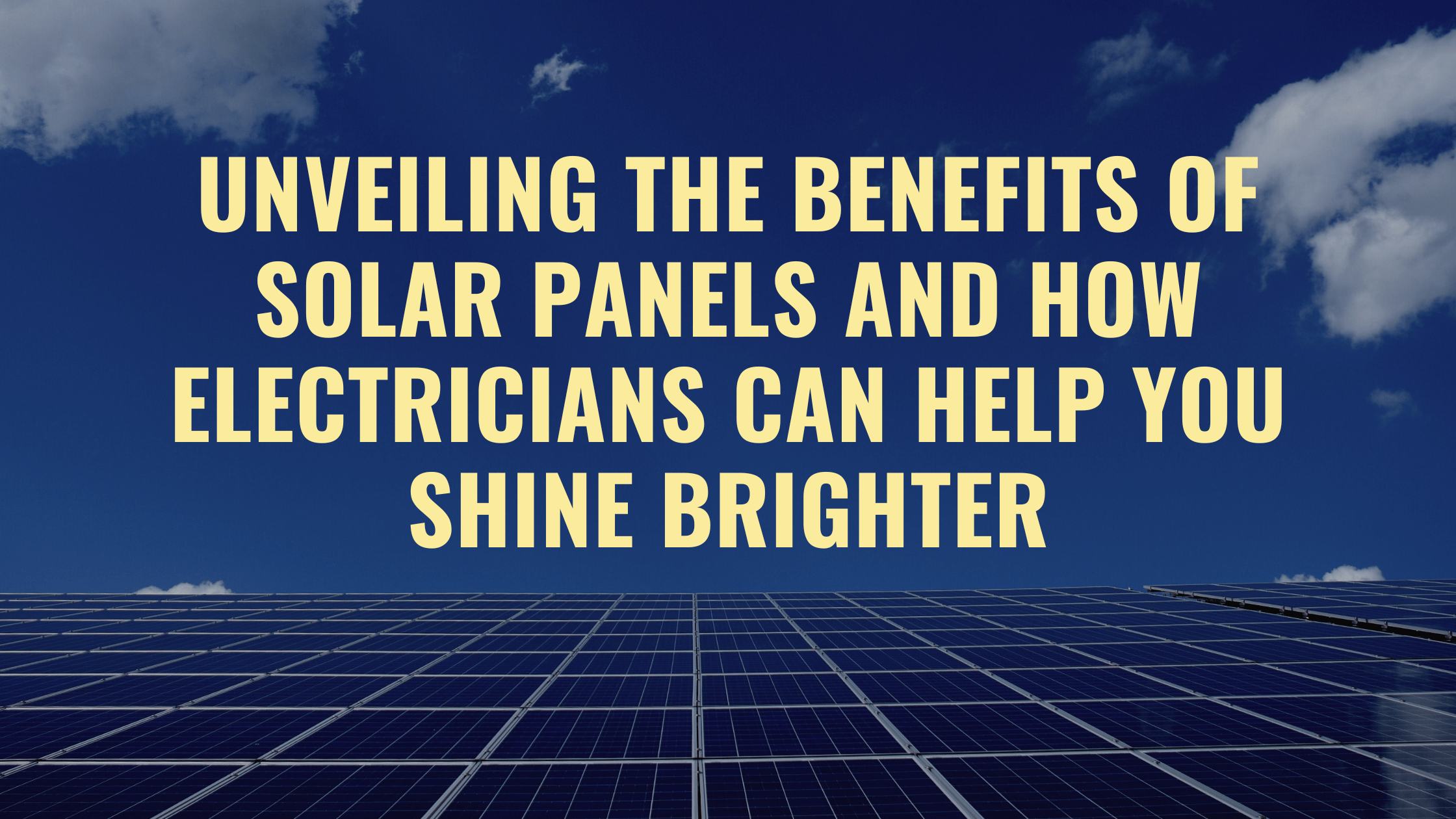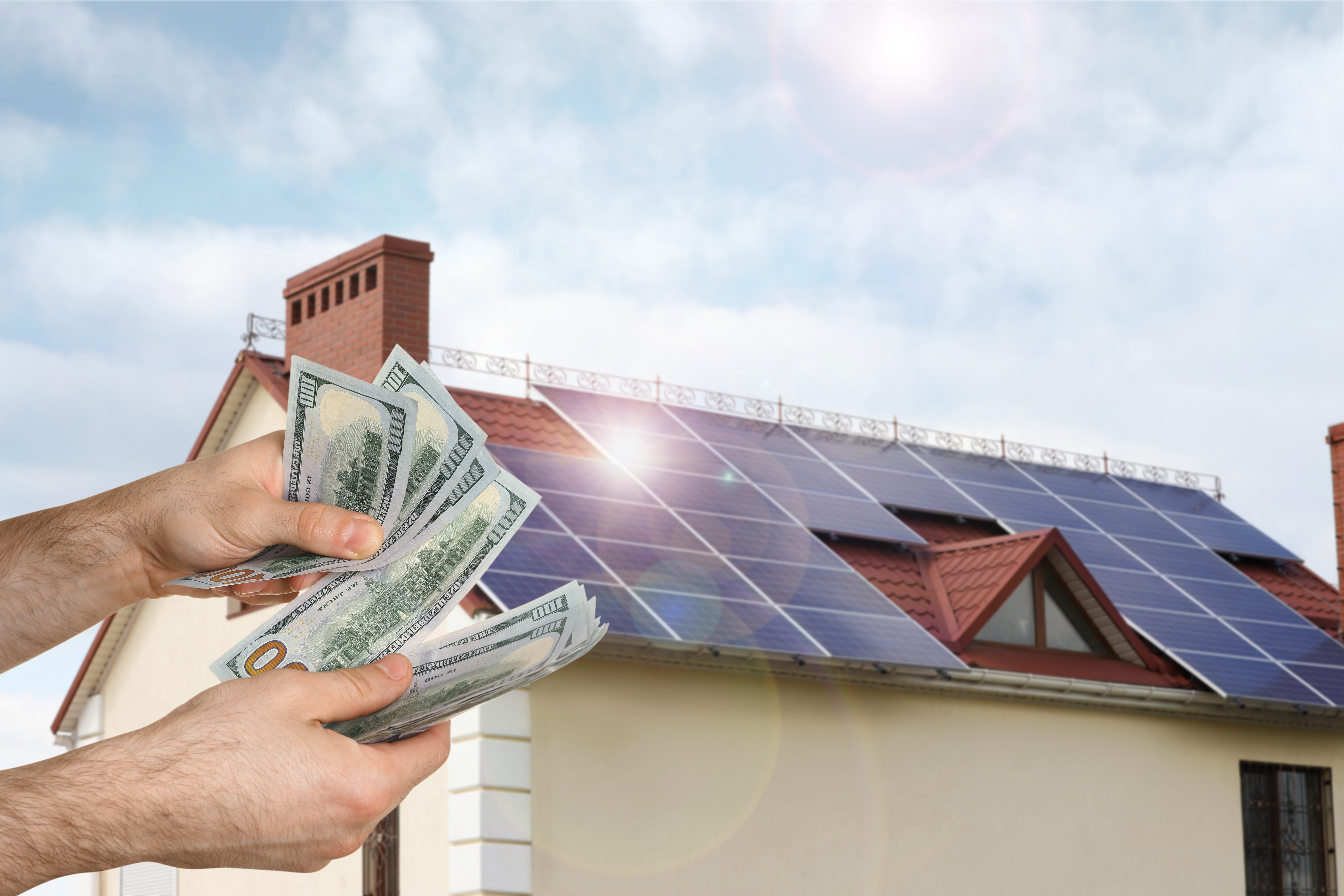Exactly How Solar Energy Can Aid You Save Money and Lower Your Carbon Footprint
The combination of solar energy right into your energy portfolio provides an engaging opportunity for both economic cost savings and environmental stewardship. By taking advantage of the sun's power, house owners can considerably lower their month-to-month energy expenses while additionally guarding against the changability of future power prices. The shift to solar adds to a marked decline in carbon emissions, aligning individual finance with wider eco-friendly objectives. As different federal government motivations appear, the concern develops: just how can one effectively browse the first financial investments and ongoing benefits of solar technology to make the most of both economic and ecological gains?
Understanding Solar Energy Cost Savings
While the transition to solar power commonly involves an initial financial investment, recognizing solar power cost savings is critical for property owners and services alike. Solar energy systems can considerably lower power expenses by using the sun's power, translating into significant long-term financial benefits.
In addition, solar energy systems may get different financial incentives, consisting of tax obligation debts and refunds, even more improving their cost-effectiveness. The accessibility of net metering permits users to sell excess power back to the grid, creating an additional earnings stream. These variables add to the general financial savings related to solar power.

Along with direct monetary savings, solar power supplies the added benefit of increasing residential property value. Homes equipped with solar panels are often extra eye-catching to buyers, as they assure reduced energy expenses - Simply Solar Illinois. Comprehending these aspects is necessary for any individual taking into consideration solar power, as it highlights not simply the prospective monetary gains, yet additionally the wider ecological and financial benefits of adopting renewable resource options
First Prices vs. Long-Term Conveniences
When assessing solar energy, it is very important to weigh the preliminary expenses versus the lasting benefits. The in advance financial investment for photovoltaic panels, installation, and related equipment can be substantial, typically ranging from $15,000 to $30,000, relying on the system size and home energy needs. This first expense might prevent some property owners; nevertheless, it is critical to consider the possible cost savings gradually.
Once mounted, solar power systems can substantially decrease and even eliminate regular monthly electrical energy expenses, resulting in considerable long-term financial benefits. Researches show that property owners can save anywhere from $10,000 to $30,000 over the lifespan of their solar system, generally 25 years. Furthermore, numerous states offer motivations, tax obligation credit reports, and discounts that can balance out initial prices, making solar a lot more accessible.

Lowering Your Carbon Impact
Reducing your carbon footprint is an important consideration in today's eco mindful culture, and taking on solar power is one of one of the most efficient strategies to achieve this objective. Solar power is a tidy, renewable energy that substantially reduces dependence on fossil gas, which are significant factors to greenhouse gas exhausts.

Furthermore, the extensive adoption of solar innovation encourages the development of eco-friendly jobs and sustains innovations in energy storage space and performance. The even more people and organizations invest in solar energy, the better the cumulative reduction in carbon exhausts, promoting a cleaner atmosphere for future generations.
Government Motivations and Discounts
Taking on solar power not just profits the environment but can additionally cause substantial financial view website savings, specifically with the schedule of government rewards and refunds. Different government, state, and neighborhood programs are designed to encourage home owners and companies to purchase solar power systems, making the change much more budget-friendly.
Among one of the most noticeable incentives is the Federal Financial Investment Tax Obligation Credit Score (ITC), which enables planetary system owners to deduct a significant portion of the setup expenses from their federal tax obligations. This motivation has actually been critical in reducing the ahead of time costs related to solar power systems. Additionally, several states use their very own tax obligation credit scores, gives, and discounts that can further enhance savings.
Furthermore, some local federal governments provide property tax exemptions for solar installments, ensuring that property owners do not deal with increased home tax obligations as a result of their renewable resource financial investments. Energy companies may additionally supply motivations, including net metering and feed-in tolls, which enable solar power get more individuals to market excess power back to the grid.
Choosing the Right Solar System
Choosing the ideal solar system is essential for optimizing energy performance and financial advantages. The choice depends upon several aspects, including power requirements, spending plan, and offered room. Home owners need to start by analyzing their power usage to identify the system dimension needed for optimal performance.
Following, consider the different types of solar modern technologies offered. Simply Solar Illinois. Photovoltaic Or Pv (PV) panels are the most usual, transforming sunlight straight right into electrical energy, while solar thermal systems concentrate on heating water. Each type has distinct benefits depending on individual demands
Spending plan factors to consider are also extremely important. Initial installment expenses can differ substantially, so it is necessary to contrast quotes from multiple companies and explore funding options. Government motivations and discounts can better minimize the financial worry, making solar systems extra easily accessible.
Final Thought
In summary, solar power offers a sensible remedy for accomplishing significant cost savings while concurrently lessening carbon exhausts. The preliminary investment, though substantial, returns significant lasting economic benefits, with prospective financial savings ranging from $10,000 to $30,000 over 25 years. Additionally, the ecological advantages of solar energy add to lasting practices crucial for combating environment adjustment. Federal government rewards improve the usefulness of solar innovation adoption, Read Full Article motivating a change in the direction of a cleaner, more financially effective power source.